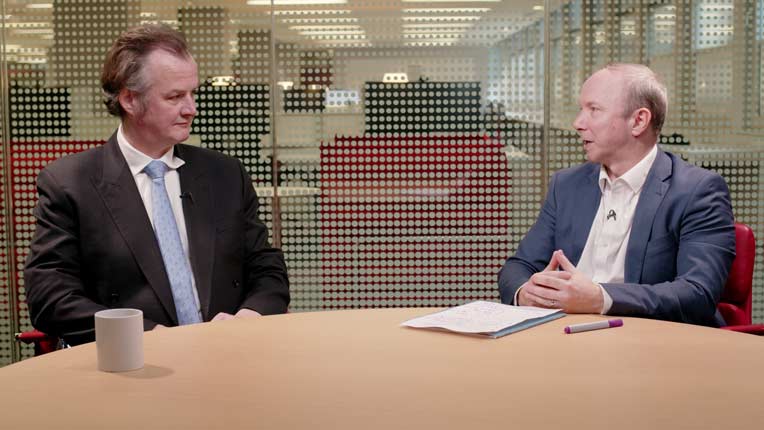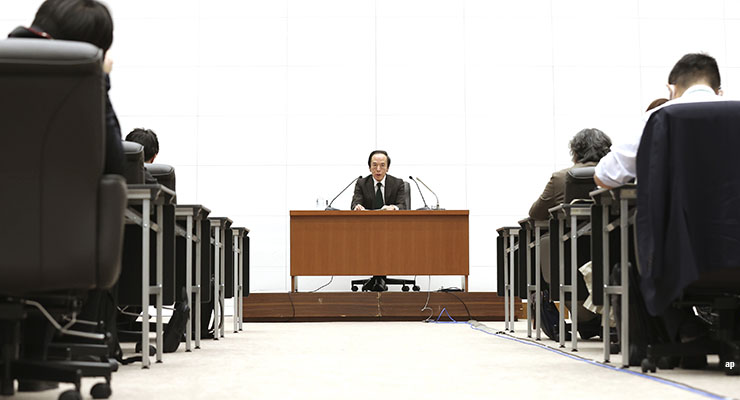Exactly what will happen to Resona is unclear. Conflicting descriptions in the Japanese media and ambiguous political statements make it hard to separate substance from talk.
Different interpretations co-exist. One is that the effective nationalisation of Resona is a well-planned first step in a series of government reforms of
the financial sector. Another is that taxpayers’ money has been handed over to the present owners of Resona and that the over-capacity of the banking sector will remain.
Some economists have long argued that the whole Japanese banking system is bankrupt. They cite the enormous amount of bad debt on the banks’ books from the property bubble of the 1980s and the continued operation of loss-making companies. The only way out is nationalisation. And this can happen if the other large banks are also forced to admit that their capital base is inadequate.
Political showdown
The outcome of the struggle for political power will be decisive. So far Heizo Takenaka, the minister for the economy and financial services, has been the strongest proponent of banking reform. But in September the Liberal Democratic Party (LDP) is holding a presidential election with the winner also becoming prime minister. Some say Junichiro Koizumi, the current prime minister, may be forced to sacrifice Mr Takenaka to win re-election.
Investors appear sceptical about the Resona bailout. The Tokyo stockmarket fell in the first week after the rescue. This can be interpreted in different ways. Perhaps investors believe that nationalisation is bad for shareholders or they may be disappointed because the government has once again failed to send a clear signal.
Political developments, especially regarding economic reforms, are critical for Japan. The LDP presidential election is likely to be the next significant event. Mr Koizumi was elected on a reform agenda in the spring of 2001. The key questions now are if he will stick to his agenda and whether he will win the election in September.
For the Tokyo stockmarket political developments are also critical. The investors who believe Mr Koizumi will finally begin the implementation of substantial reforms may also be expecting this year to be a good buying opportunity.



























